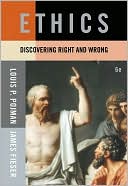Category Books
- Fiction Books & Literature
- Graphic Novels
- Horror
- Mystery & Crime
- Poetry
- Romance Books
- Science Fiction & Fantasy
- Thrillers
- Westerns
- Ages 0-2
- Ages 3-5
- Ages 6-8
- Ages 9-12
- Teens
- Children's Books
- African Americans
- Antiques & Collectibles
- Art, Architecture & Photography
- Bibles & Bible Studies
- Biography
- Business Books
- Christianity
- Computer Books & Technology Books
- Cookbooks, Food & Wine
- Crafts & Hobbies Books
- Education & Teaching
- Engineering
- Entertainment
- Foreign Languages
- Game Books
- Gay & Lesbian
- Health Books, Diet & Fitness Books
- History
- Home & Garden
- Humor Books
- Judaism & Judaica
- Law
- Medical Books
- New Age & Spirituality
- Nonfiction
- Parenting & Family
- Pets
- Philosophy
- Political Books & Current Events Books
- Psychology & Psychotherapy
- Reference
- Religion Books
- Science & Nature
- Self Improvement
- Sex & Relationships
- Social Sciences
- Sports & Adventure
- Study Guides & Test Prep
- Travel
- True Crime
- Weddings
- Women's Studies
Cengage Advantage Books: Ethics: Discovering Right and Wrong » (6th Edition)

Authors: Louis P. Pojman, James Fieser
ISBN-13: 9780495502357, ISBN-10: 0495502359
Format: Paperback
Publisher: Cengage Learning
Date Published: February 2008
Edition: 6th Edition
Author Biography: Louis P. Pojman
Louis P. Pojman (1935-2005) was Professor of Philosophy, Emeritus, at the United States Military Academy and a Life Member of Clare Hall, Cambridge University. He received an M.A. and Ph.D. from Union Theological Seminary/Columbia University and a D. Phil. from Oxford University. He wrote in the areas of philosophy of religion, epistemology, ethics, and political philosophy and is the author or editor of more than 30 books and 100 articles. Among these are ETHICS: DISCOVERING RIGHT AND WRONG (6/e 2009), ENVIRONMENTAL ETHICS (5/e 2008), WHO ARE WE? (2005), and GLOBAL POLITICAL PHILOSOPHY (2003).
James Fieser is Professor of Philosophy at the University of Tennessee at Martin. He received his B.A. from Berea College and his M.A. and Ph.D. in philosophy from Purdue University. He is author, co-author, or editor of ten textbooks, including SOCRATES TO SARTRE AND BEYOND (9/e 2011), ETHICAL THEORY: CLASSICAL AND CONTEMPORARY READINGS (6/e 2010), A HISTORICAL INTRODUCTION TO PHILOSOPHY (2003), and MORAL PHILOSOPHY THROUGH THE AGES (2001). He has edited and annotated the ten-volume EARLY RESPONSES TO HUME (2/e 2005) and the five-volume SCOTTISH COMMON SENSE PHILOSOPHY (2000). He is founder and general editor of the Internet Encyclopedia of Philosophy website (http://www.iep.utm.edu).
Book Synopsis
Pojman (Cambridge U.) introduces undergraduate students to major issues in classical and contemporary moral philosophy. Using a jargon-free conversational style, he encourages readers to work out their own solutions to ethical problems. The fifth edition features a discussion of society's responsibility towards future generations as well as a new section on Ayn Rand's version of egoism. The text may be used as a companion volume to the author's anthology Ethics: Classical and Contemporary Readings (Wadsworth, 2002). Annotation ©2004 Book News, Inc., Portland, OR
Booknews
Throughout this textbook on ethics, Pojman (philosophy, U.S. Military Academy, West Point) emphasizes the importance of the student developing his or her own moral theory. Some of the concepts explored include moral relativism and objectivism, altruism, utilitarianism, religion, and skepticism. An analysis of the modified divine command theory and suggestions for how to read and write a philosophy paper are contained in the appendices. The text may be used as a companion volume to Pojman's , 4th ed. Annotation c. Book News, Inc., Portland, OR (booknews.com)
Table of Contents
Preface. 1. WHAT IS ETHICS? Ethics and its subdivisions. Morality as compared with other normative subjects. Traits of moral principles. Domains of ethical assessment. Conclusion. 2. ETHICAL RELATIVISM. Subjective ethical relativism. Conventional ethical relativism. Criticisms of conventional ethical relativism. Conclusion. 3. MORAL OBJECTIVISM. Aquinas? objectivism and absolutism. Moderate objectivism. Ethical situationalism. Conclusion. 4. VALUE AND THE QUEST FOR THE GOOD. Intrinsic and instrumental value. The value of pleasure. Are values objective or subjective? The relation of value to morality. The good life. 5. SOCIAL CONTRACT THEORY AND THE MOTIVE TO BE MORAL. Why does society need moral rules? Why should I be moral? Morality, self-interest and game theory. The motive to always be moral. Conclusion. 6. EGOISM, SELF-INTEREST, AND ALTRUISM. Psychological egoism. Ethical egoism. Arguments against ethical egoism. Evolution and altruism. Conclusion. 7. UTILITARIANISM Classic utilitarianism. Act and rule-utilitarianism. Criticism of utilitarianism. Criticism of the ends justifying immoral means. Conclusion. 8. KANT AND DEONTOLOGICAL THEORIES. Kant's influences. The categorical imperative. Counterexamples to the principle of the law of nature. Other formulations of the categorical imperative. The problem of exceptionless rules. The problem of posterity. Conclusion: a reconciliation project. 9. VIRTUE THEORY. The nature of virtue ethics. Criticisms of action-based ethics. Connections between virtue-based and action-based ethics. Feminism and the ethics of care. Conclusion. 10. GENDER AND ETHICS. Classic Views. Female Care Ethics. Four Options regarding Gender and Ethics. Conclusion. 11. RELIGION AND ETHICS. Does morality depend on religion? Is religion irrelevant or even contrary to morality? Does religion enhance the moral life? Conclusion. 12. THE FACT-VALUE PROBLEM. Hume and Moore: the problem classically stated. Ayer and emotivism. Hare and prescriptivism. Naturalism and the fact-value problem. Conclusion. 13. MORAL REALISM AND THE CHALLENGE OF SKEPTICISM. Mackie's moral skepticism. Harman's moral nihilism. A defense of moral realism. Conclusion. Appendix: How to Read and Write a Philosophy Paper. Glossary. Index.
Subjects
 Ethics & Moral Philosophy
Ethics & Moral PhilosophyNonfiction
 Philosophy
Philosophy  Major Branches of Philosophical Study
Major Branches of Philosophical StudyPhilosophy
 Major Branches of Philosophical Study
Major Branches of Philosophical Study  Ethics & Moral Philosophy
Ethics & Moral Philosophy
